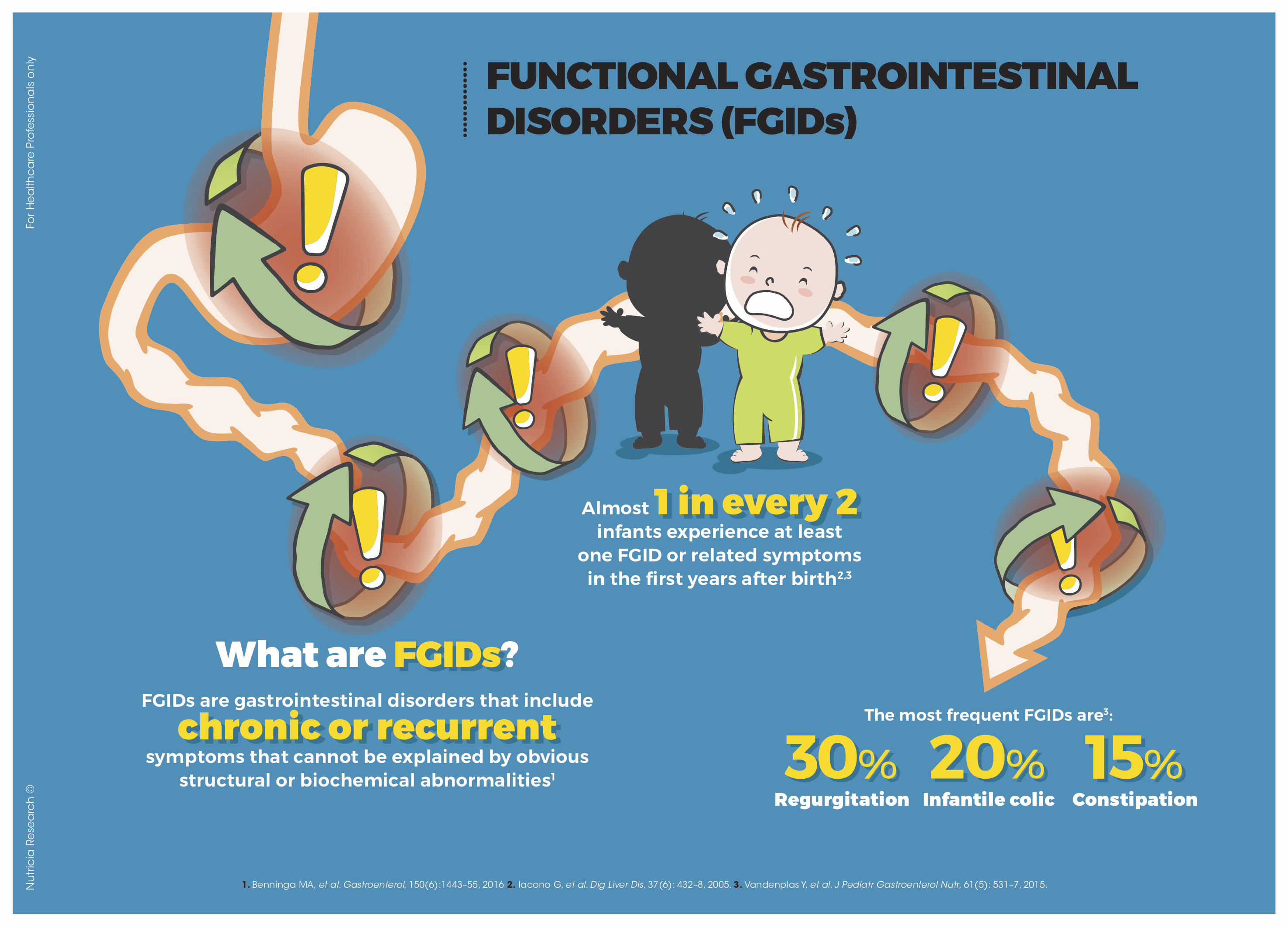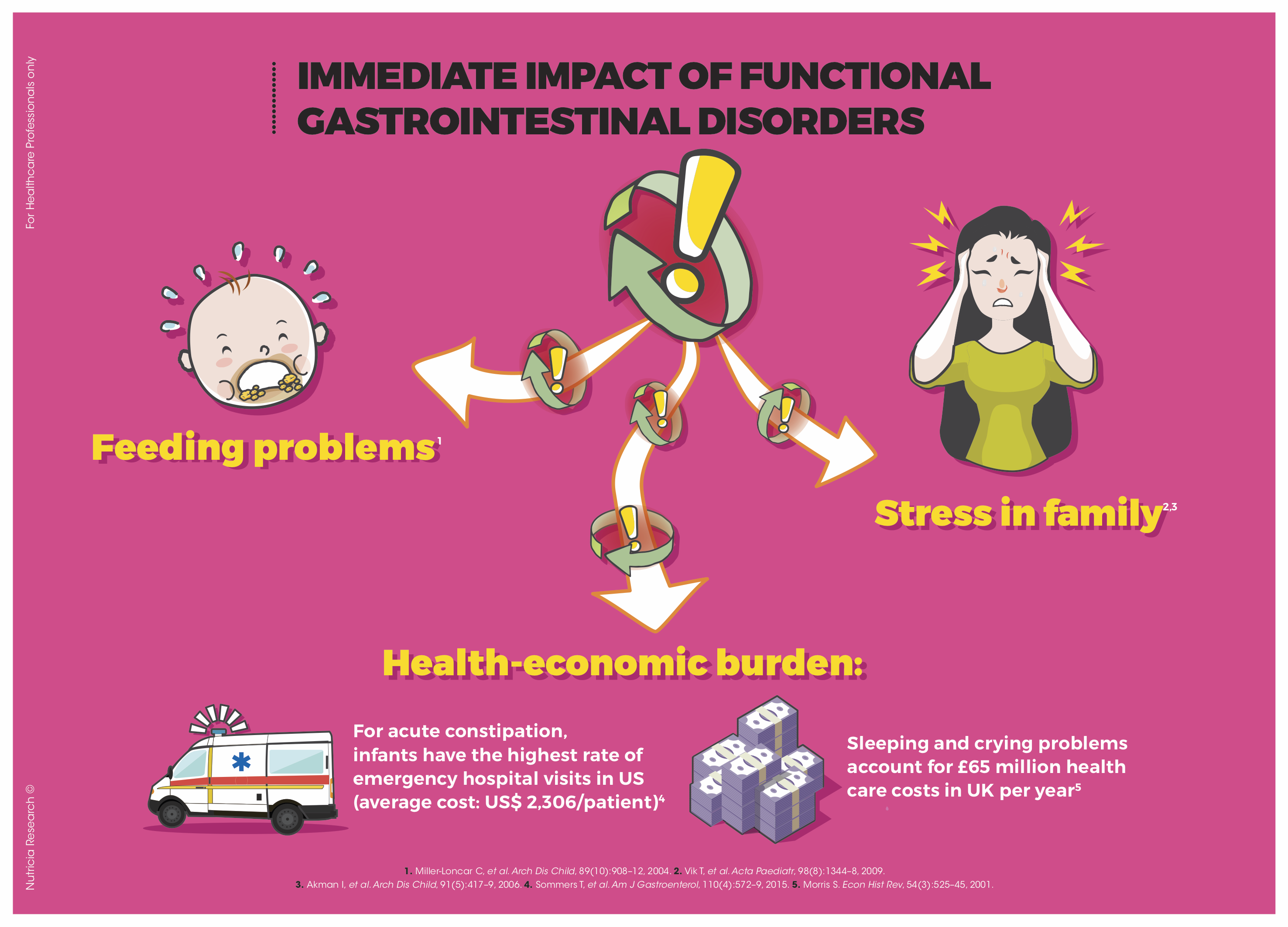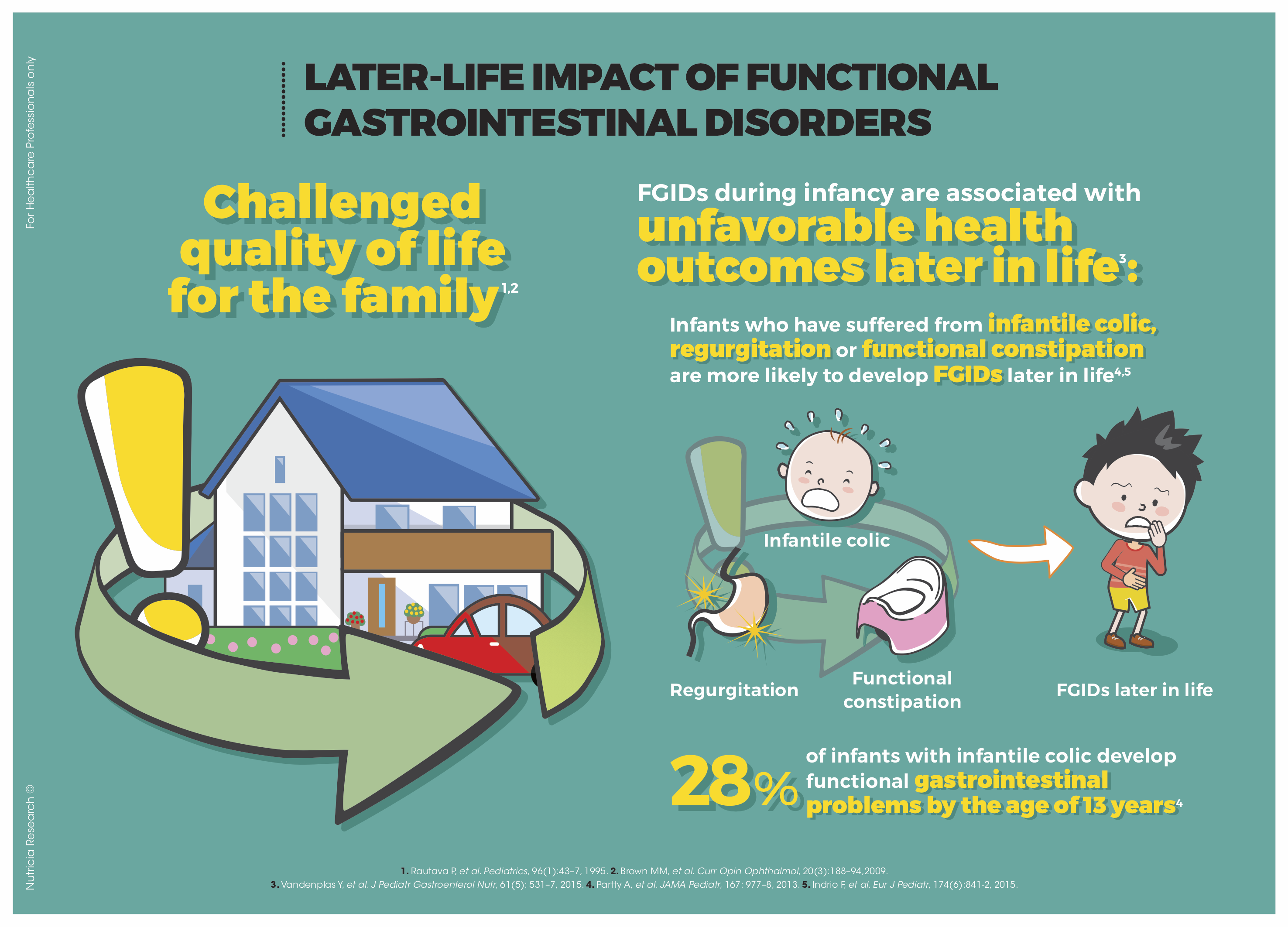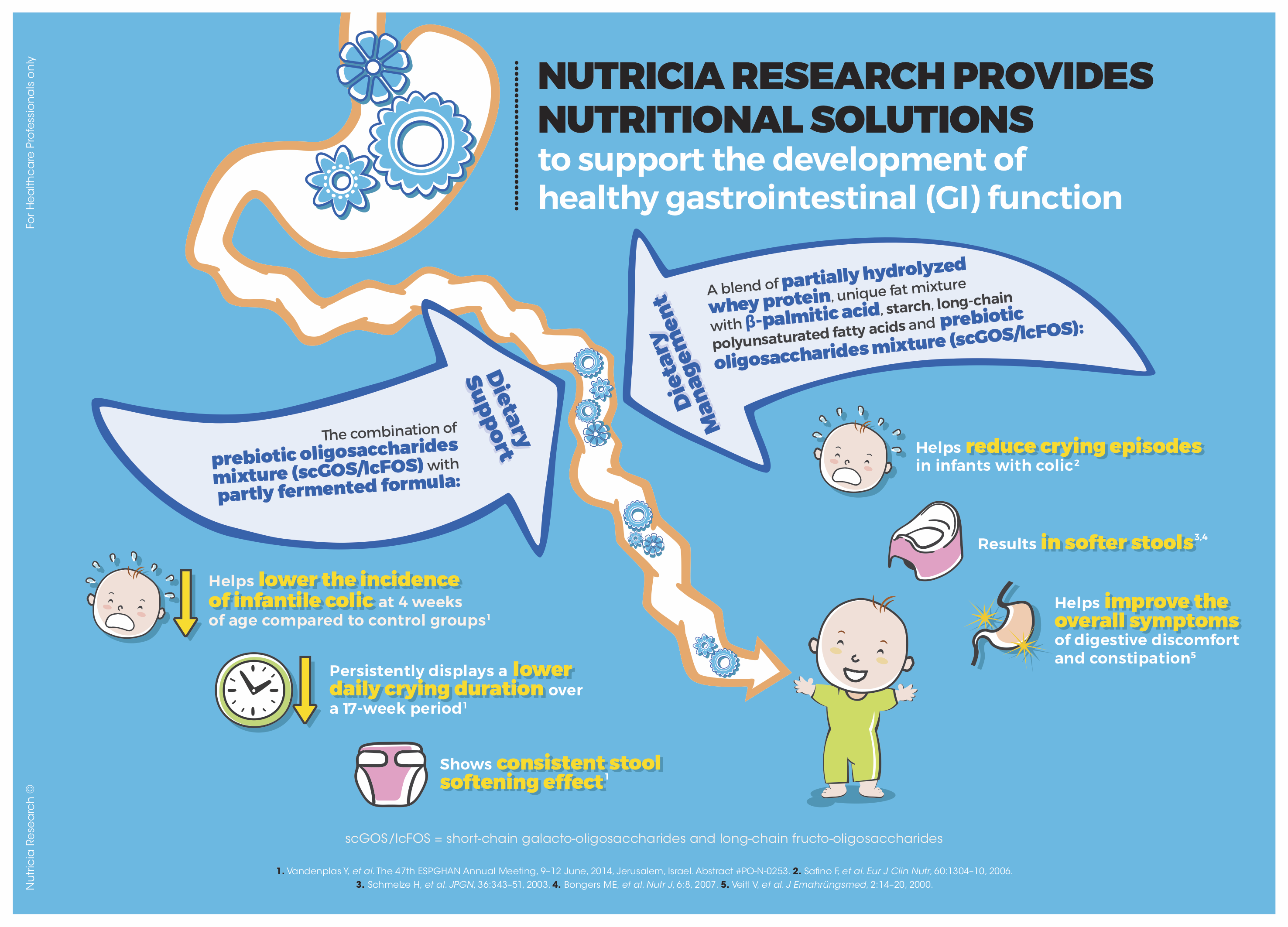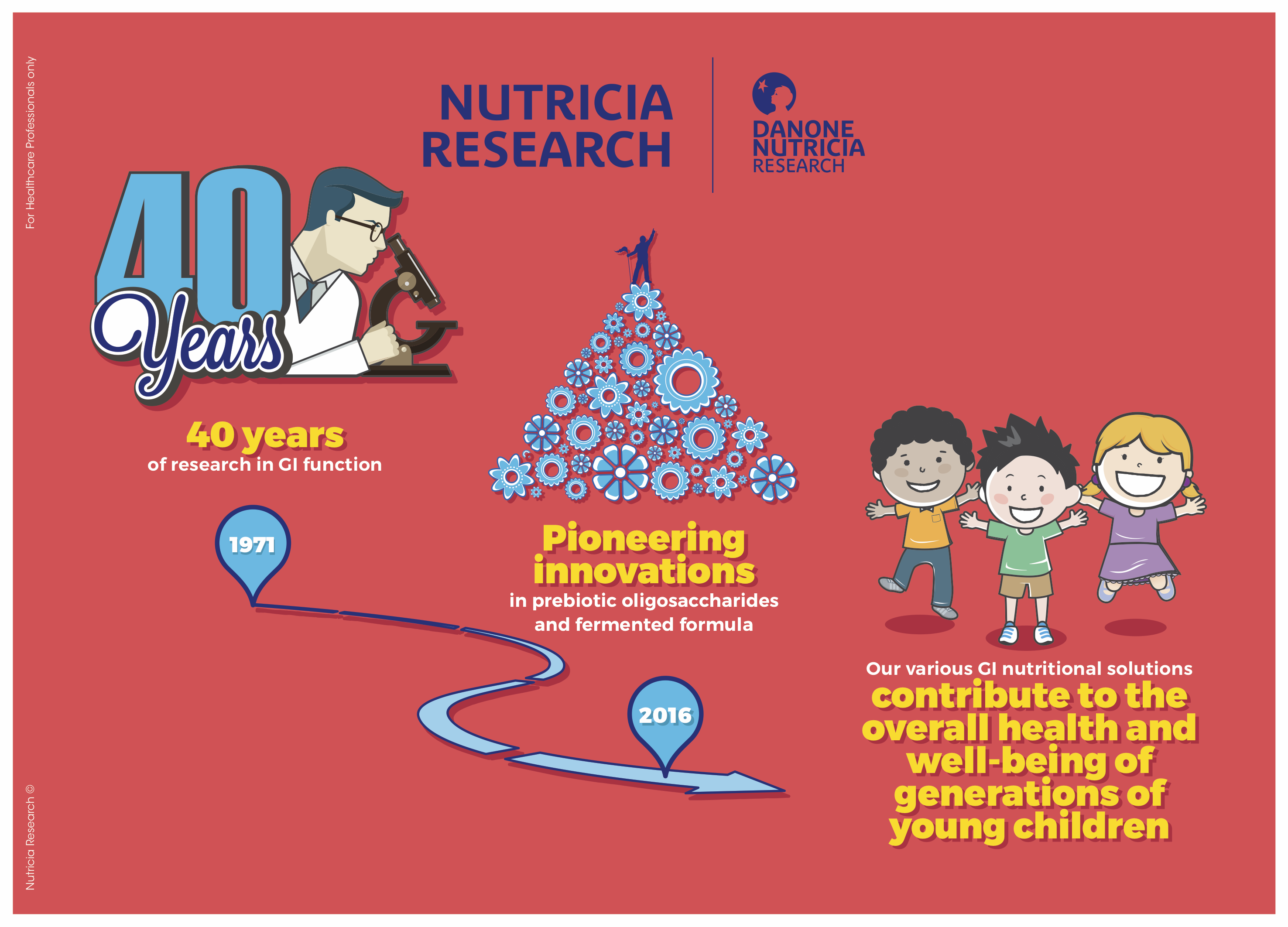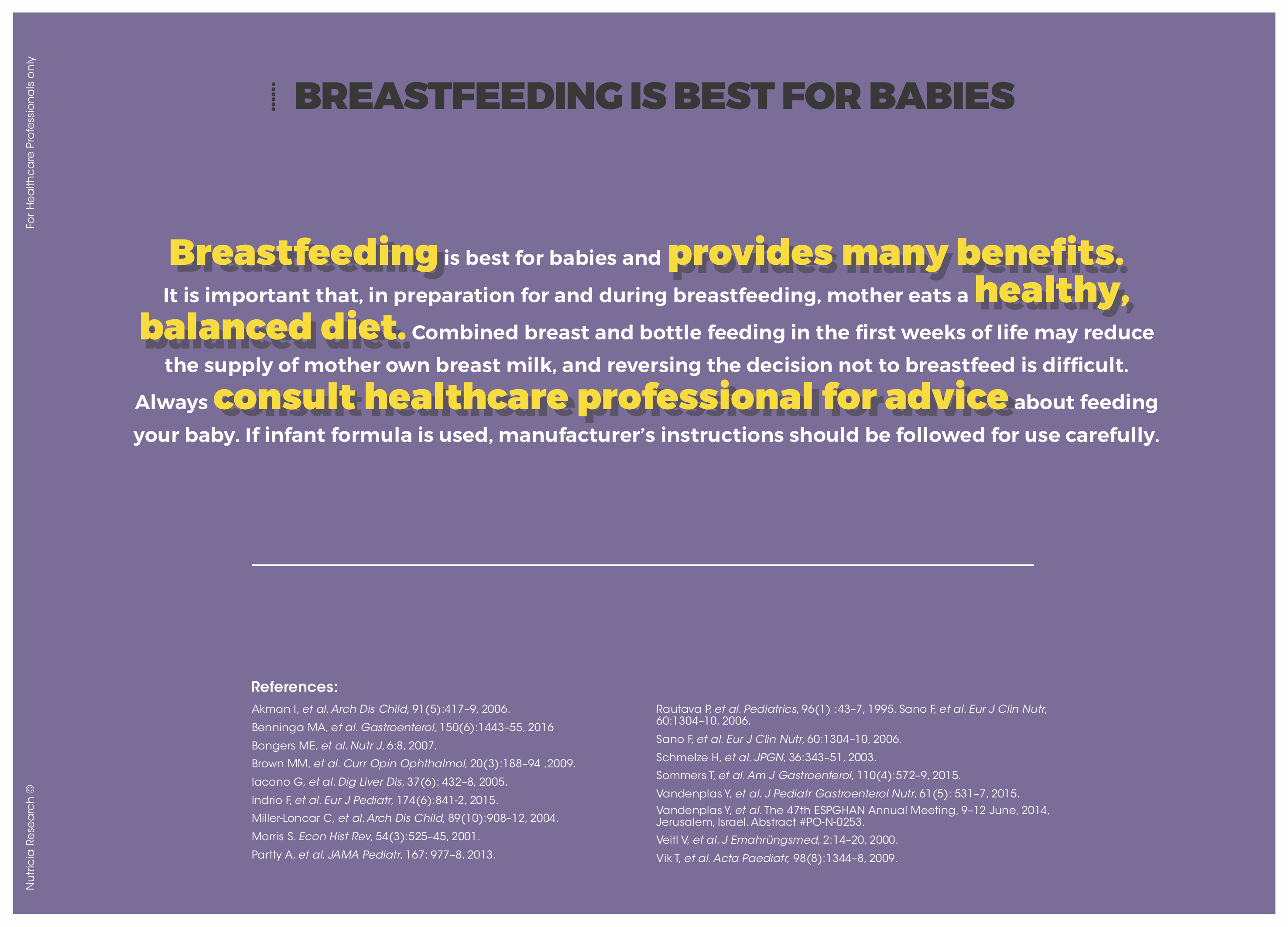During infancy, the structure and function of the gastrointestinal (GI) tract, the nervous system and microbiota are still maturing and this may cause GI signs and symptoms that have no obvious structural or biochemical cause.1Salvatore S, Abkari A, Cai W, et al. Review shows that parental reassurance and nutritional advice help to optimise the management of functional gastrointestinal disorders in infants. Acta Paediatr. … Continue reading
Common FGIDs include regurgitation (30%), infantile colic (20%) and functional constipation (15%).2Vandenplas Y, et al. J Pediatr Gastroenterol Nutr. Published on 2015;61:531-37

These not only affect the well-being of the infant in both the short and long term, but can also cause distress for their families.4Vik, et al. Acta Paediatr. Published on 2009; 98:1344-8 Furthermore, more frequent healthcare visits result in an increased economic burden on healthcare systems.5Glanville, et al. BMJ Open. Published on 2016;6:doi 10.1136/bmjopen-2016-011475
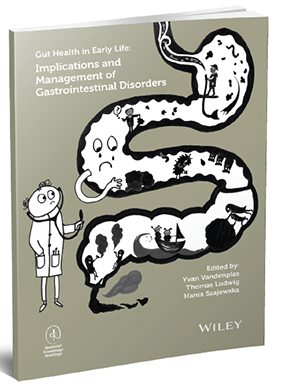 ‘Gut Health is Early Life: Implications and Management of Gastrointestinal Disorders’ provides the latest updates in the prevalence, cause, impact, diagnosis and management of common functional gastrointestinal disorders during pregnancy and infancy.
‘Gut Health is Early Life: Implications and Management of Gastrointestinal Disorders’ provides the latest updates in the prevalence, cause, impact, diagnosis and management of common functional gastrointestinal disorders during pregnancy and infancy.
Watch a short film about our FGID in early life here:
Managing functional gastrointestinal disorders (FGIDs)
Infants suffering from GI symptoms often go through a series of unnecessary investigations and medical treatments. Generally, medication has failed to bring significant improvement in these conditions.6Vandenplas Y, et al. Acta Paediatr. Published on 2016;105:244-52
Based on the latest international guidelines and expert recommendations, the practical algorithms for the management of frequent GI symptoms emphasise the importance of dietary intervention, parental reassurance and education.7Salvatore S, Abkari A, Cai W, et al. Review shows that parental reassurance and nutritional advice help to optimise the management of functional gastrointestinal disorders in infants. Acta Paediatr. … Continue reading We affirm that breast feeding is the ideal source of nutrition for infants and it should be continued even when infants display gastrointestinal symptoms.

More and more experts recognise and acknowledge the value of nutrition, together with parental education and reassurance, in the management of common FGIDs and related symptoms.8Vandenplas Y, et al. Acta Paediatr. Published on 2016;105:244-52
Read more on: Clinically proven innovations for FGID management
Click here to view our infographic about functional gastrointestinal disorders in infancy and the effect of early life nutrition.
View References
| 1, 7 | Salvatore S, Abkari A, Cai W, et al. Review shows that parental reassurance and nutritional advice help to optimise the management of functional gastrointestinal disorders in infants. Acta Paediatr. Published on April 2018 |
|---|---|
| 2, 3 | Vandenplas Y, et al. J Pediatr Gastroenterol Nutr. Published on 2015;61:531-37 |
| 4 | Vik, et al. Acta Paediatr. Published on 2009; 98:1344-8 |
| 5 | Glanville, et al. BMJ Open. Published on 2016;6:doi 10.1136/bmjopen-2016-011475 |
| 6, 8 | Vandenplas Y, et al. Acta Paediatr. Published on 2016;105:244-52 |
